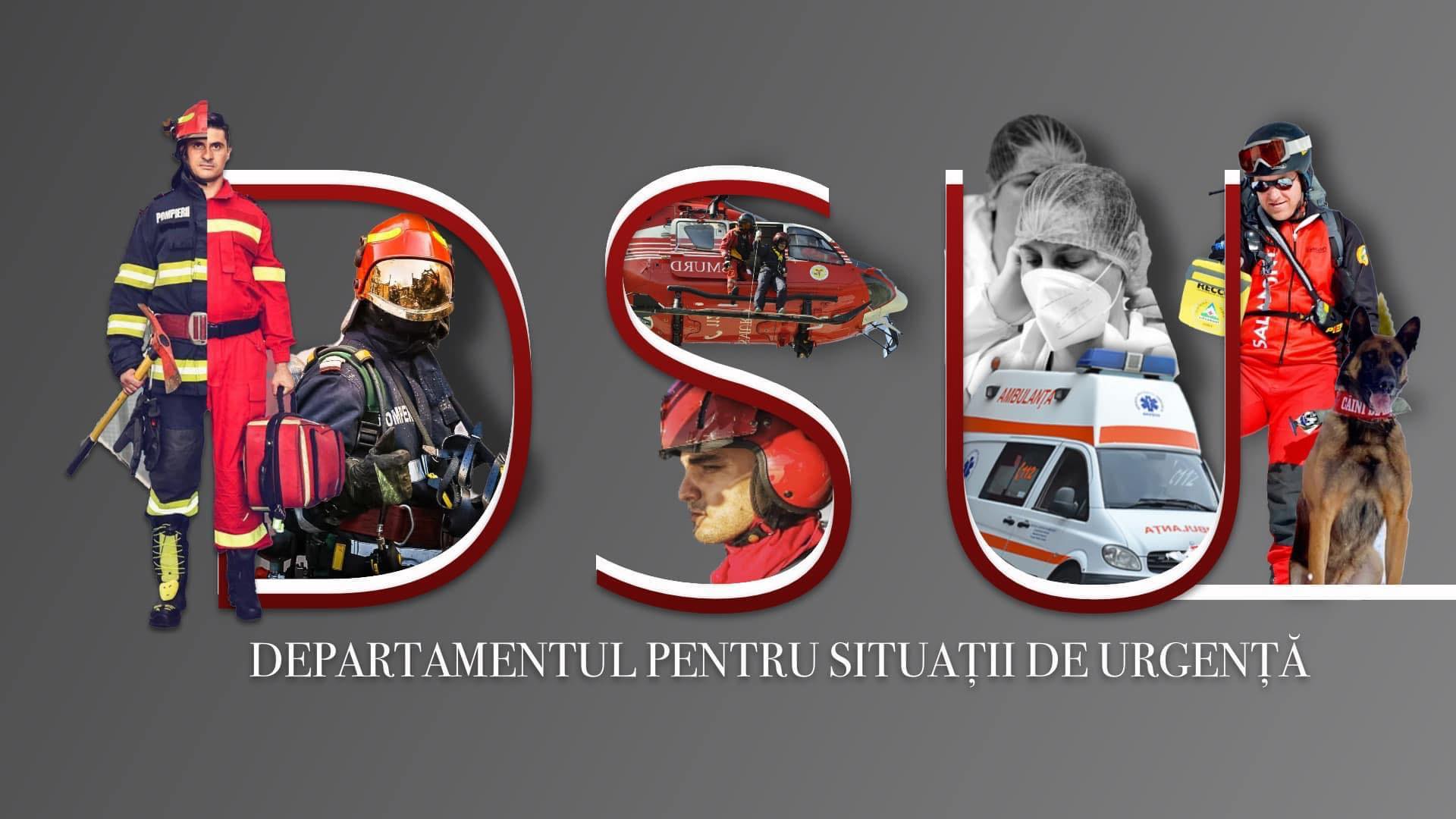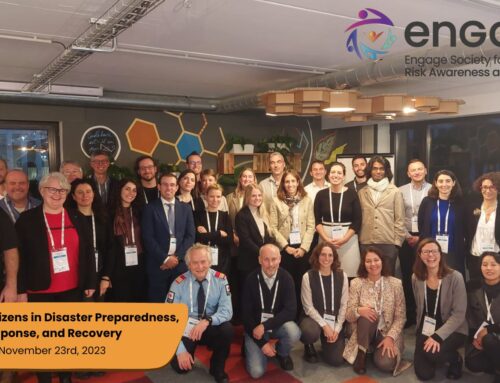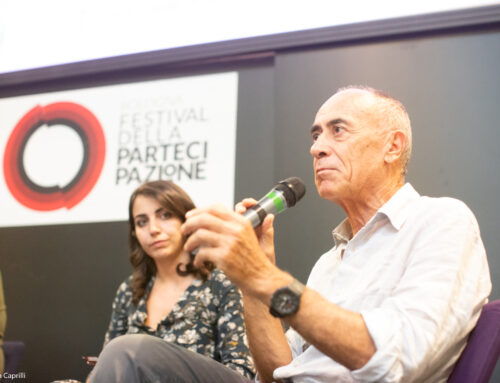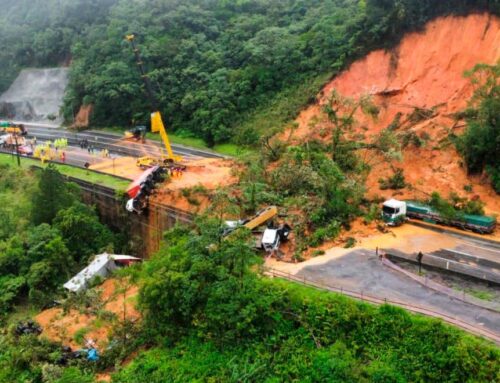Different Solutions for More Prepared and Engaged Communities
The emergency system of any country is a strategic area. Its purpose is essential to save and preserve life in everyday situations or during major disasters. The leading role of the Department for Emergency Situations (DSU) has required the identification of all possible measures for further development of the emergency system so that Romania becomes safer from disasters.
Thus, DSU became an operational structure under the Romanian Ministry of Internal Affairs, in charge of the permanent national coordination of emergency prevention and management actions, the provision and coordination of human, material, financial and other resources needed to restore normality, including specialist first aid and medical emergencies. In this process, a very important pillar is represented by the cooperation with the civil society, specifically in terms of building different tools for more awareness and enhanced responsibility of the population. In this regard, a selection of these tools will be shortly presented below:
- Resource Volunteer Management App [1] – Is a tool for managing volunteers and resources that civil society provides to the Department for Emergency Situations in case of major seismic alert state or other natural disasters. The application allows inventory management of available resources. It maintains a clear situation regarding the quantities, types of materials and places they are stored, and the status of volunteers organised on distinct specialisations. All rescue forces in the field can use the mobile component of the solution to validate professional volunteers, manage the spontaneous ones and send alerts for help in various areas.
- Be Ready Caravan – Is a training and awareness campaign implemented by the Department for Emergency Situations and SMURD Foundation with the primary goal of organizing training courses at the national level, focused on first aid, prevention and preparedness (for the population living in both rural and urban areas). The caravan per se is a mobile training centre built on the structure of a truck. It has an extendable part, which is used as a classroom with a capacity of 40 people and a room with medical and first aid equipment. This solution can be seen as a driver of change in rural and urban areas that significantly impact societal resilience.
- The Kubik Educational Programme – An educational programme dedicated to food allergies aims to help as many families achieve a better quality of life, minimising the stress that both parents and children could be subjected to after confirming a food allergy. This programme contributes to enhanced risk awareness and preparedness, including how and when to use an EpiPen adrenaline auto-injector. At the same time, this programme represents an opportunity to learn about the complicated mechanism of allergic reactions, read labels correctly, avoid cross-allergenic contamination, recognise emergencies as soon as possible and apply the necessary measures.
- EU Modex Bucharest – The Module Exercises (MODEX) are organized and implemented under the umbrella of the Directorate-General for European Civil Protection and Humanitarian Aid Operations (DG ECHO) and are part of an exercises series within the EU Civil Protection Mechanism. The role of this exercise was to train emergency services (firefighters, pilots, paramedics and medical emergency services) and involve civil society, role players (students) and mass media. Having an integrated mechanism of cooperation will strengthen societal resilience and increase the preparedness level of the communities.
- Don’t Shake at Earthquake – The national awareness and preparedness campaign focused on how to react in different places in case of an earthquake (at home, at the office, at school, at market, on the street, etc.). This is based on the need to send a unitary message to the population and provide correct information on how to behave in case of an earthquake. The importance of education in anti-earthquake is paramount to saving lives and contributing to improving citizens’ autonomy and proactiveness.
- RoHelp – Is a fully-featured digital platform which lends itself to be used by all organisations which are actively involved in halting the spread of Covid-19, but it can also be used for other humanitarian causes at the community level. The platform’s primary purpose is to help organisations collect the resources they need. As a user, the platform will help identify the most pressing needs that organisations face across the country. As a result, it makes it easy to choose the cause you donate to or the efforts you contribute to.
In addition to all these solutions presented in the ENGAGE Knowledge Platform, the Romanian Department for Emergency Situations developed some other solutions that can be mentioned and highlighted:
- DSU App [2] – the official mobile app of the Department for Emergency Situations designed to provide citizens with a rapid tool for informing and reporting critical situations and disasters they witness. This app also includes alerts in real-time (i.e. traffic, weather, etc.), various articles and news and official declarations and statements.
- RO-Alert System – this system allows sending Cell Broadcast messages to warn and alert citizens in case of emergency, according to the legal provisions. RO-ALERT System is used in those major situations in which citizens’ lives and health conditions are endangered, such as extreme weather conditions, threatening floods, terrorist attacks and other situations that severely threaten communities.
- National Platform for Preparedness in Emergency Situations – fiipregatit.ro has become the official source of information to help citizens better understand the risks and to inform them about the prevention measures and the behaviour they should have in various emergencies (based on different guides on how to behave before, during and after an emergency and/or disaster).
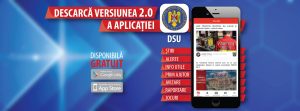
DSU mobile app
[1] The RVM App is an internal application dedicated to emergency services and civil society organizations that have signed a cooperation protocol with DSU.
[2] The DSU App can be downloaded for free from Google Play and Apple Store.
Author: George Mihael Manea, Department for Emergency Situations, Romanian Ministry of Internal Affairs

